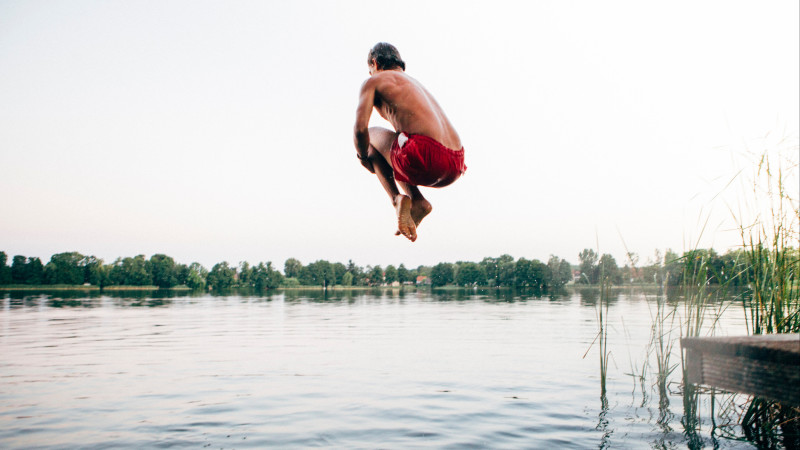Don't let parasites ruin your summer
MDlinx May 23, 2024
For many, summer break offers a welcome respite from the daily grind, full of beach days, golf outings, and extended visits with family and friends. It’s not all good, though—summer comes with its own set of health risks.

Parasitic infections, for example, are more active during the summer months. And we’re not just talking about fleas and ticks.
Helminths
One of the highest seasonal prevalence periods for roundworms and hookworms occurs in July and August.
Drake J, Carey T. Seasonality and changing prevalence of common canine gastrointestinal nematodes in the USA. Parasit Vectors. 2019;12(1):430.
These parasites are found in fecal matter of dogs and cats. Eggs and larvae passed through animal feces can live for weeks or years in places with high activity, such as playgrounds. Humans can become infected with roundworms when their eggs or larvae find their way into human mouths from soil, sand, and plants.
Hookworms occur secondary to skin penetration. Children are more vulnerable to both hookworms and roundworms because they spend more time on the grass and ground, compared with adults.
Many times, roundworms wander the body without causing any damage.
Hookworms, however, generally cause inflammation and skin irritation. Sometimes, hookworms can make their way to the eye and cause vision issues, including blindness, or burrow into the intestines or other deeper tissues and cause serious damage.
CDC. What every pet owner should know about roundworms and hookworms.
Prevention depends on deworming kittens and puppies and prophylactically treating these animals with antihelminitics. It’s also important to avoid touching soil or sand that may be contaminated by animal feces. Play areas like lawns and gardens should be clear of animal feces, with sandboxes kept covered. Children and adults should wash their hands vigilantly following potential exposure to animal feces.
Cryptosporidium
Cryptosporidium causes more than half of all waterborne diseases linked to swimming in chlorinated pools, as it is chlorine-resistant. Patients infected with crypto should be advised not to swim until 2 weeks post-resolution of symptoms.
CDC. Clinical care of crypto. February 28, 2024.
Crypto results in watery diarrhea, nausea, vomiting, fever, and stomach cramping, and is especially dangerous in immunocompromised patients, such as those who have undergone organ transplantation or have HIV.
CDC. Symptoms of crypto. May 14, 2024.
Treatment is symptomatic and includes nitazoxanide for diarrhea.
CDC. Treatment of crypto. January 18, 2024.
Prevention involves not drinking water from any untreated sources, avoiding non-pasteurized milk or cider, keeping children with diarrhea away from public pools and other swimming areas, and washing hands frequently with soap and water.
CDC. Preventing crypto. May 14, 2024.
Cyclosporiasis
This intestinal illness is caused by a microscopic parasite called Cyclospora cayetanensis, which is found in fecal-contaminated food and water.
CDC. About cyclosporiasis. March 4, 2024.
Symptoms begin about 1 week after ingesting sporulated oocysts and include watery diarrhea, cramping, fatigue, nausea, and vomiting. Every case should be reported to the CDC so they can trace outbreaks. This disease is treated with TMP/SMX.
CDC. Clinical care of cyclosporiasis. March 8, 2024.
Between 2009 and 2017, the number of cases of cyclosporiasis increased by 13% each year.
CDC. Press Release: Outbreaks of diarrhea caused by summertime parasite increased from 2009 through 2017.
Infection prevention involves washing hands after handling potentially contaminated fruits and vegetables; washing all fruits and vegetables thoroughly; and refrigerating cut, peeled, or cooked fruit and vegetables within 2 hours of preparation.
CDC. Preventing cyclosporiasis. March 4, 2024.
Free-living amoeba
First reported as causing dangerous CNS disease in the 1960s, various types of free-living amoeba have been documented in the literature, including Naegleria fowleri (ie, the brain-eating amoeba).
Chen S, Che C, Lin W, et al. Case report: Recognition of devastating primary amoebic meningoencephalitis (PAM) caused by Naegleria fowleri: Another case in South China detected via metagenomics next-generation sequencing combined with microscopy and a review. Front Trop Dis. 2022 Aug;3.
Infections with this pathogen usually result in primary amoebic meningoencephalitis (PAM), which is life threatening.
It is difficult to differentiate PAM from bacterial meningoencephalitis without the use of metagenomics next-generation sequencing (mNGS). Of note, brain functional evaluation helps determine the prognosis of PAM, and continuous renal replacement therapy (CRRT) may prolong the survival time of PAM patients with multiple organ failure.
In one recent case from South China, a 47-year-old man with high fever presented with loss of consciousness and generalized tonic-clonic seizures. He required ventilator-controlled ventilation and was admitted to the neurology ICU. Use of mNGS made the diagnosis of PAM secondary to N. fowleri infection. The patient experienced brain death 4 days after admission.
Chen S, Che C, Lin W, et al. Case report: Recognition of devastating primary amoebic meningoencephalitis (PAM) caused by Naegleria fowleri: Another case in South China detected via metagenomics next-generation sequencing combined with microscopy and a review. Front Trop Dis. 2022 Aug;3.
Transmission usually occurs after swimming in warm, freshwater sources such as lakes, ponds, or rivers. To avoid infection, avoid submerging in these water sources. It’s a bad idea to stir up sediment when swimming, as the amoeba lives in the sediment. Immediate medical attention is warranted in a person who has swum in a warm, freshwater source and develops headache, fever, stiff neck, and vomiting within 12 hours. It takes about 5 days for PAM to manifest.
CDC. How to prevent Naegleria fowleri infection when swimming. May 2, 2024.
What this means for you
Summer fun necessitates precautions against parasites. Common sources include warm or chlorinated water, drinking water, and fruits and vegetables. It’s important for children and adults to wash their hands vigilantly and to adequately clean fresh produce.
-
Exclusive Write-ups & Webinars by KOLs
-
Daily Quiz by specialty
-
Paid Market Research Surveys
-
Case discussions, News & Journals' summaries